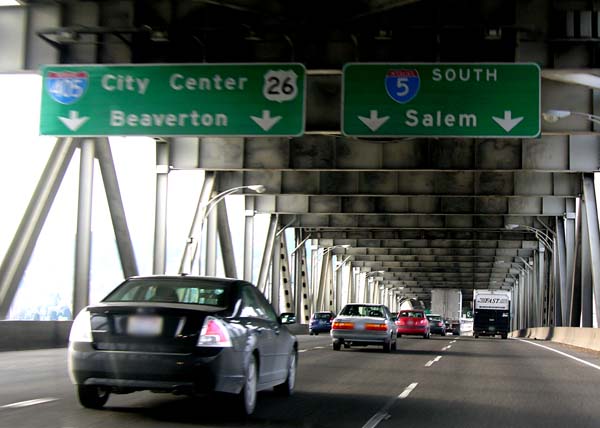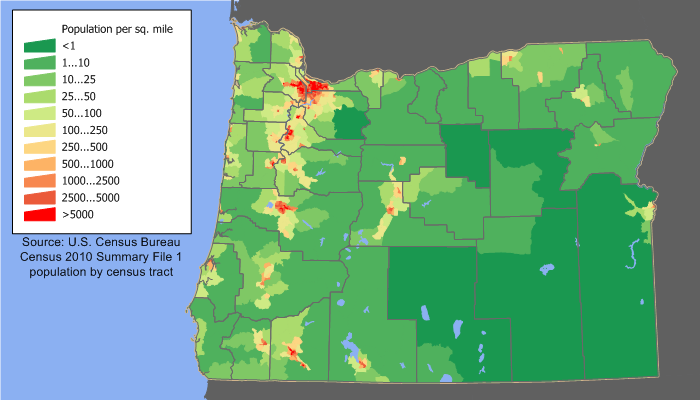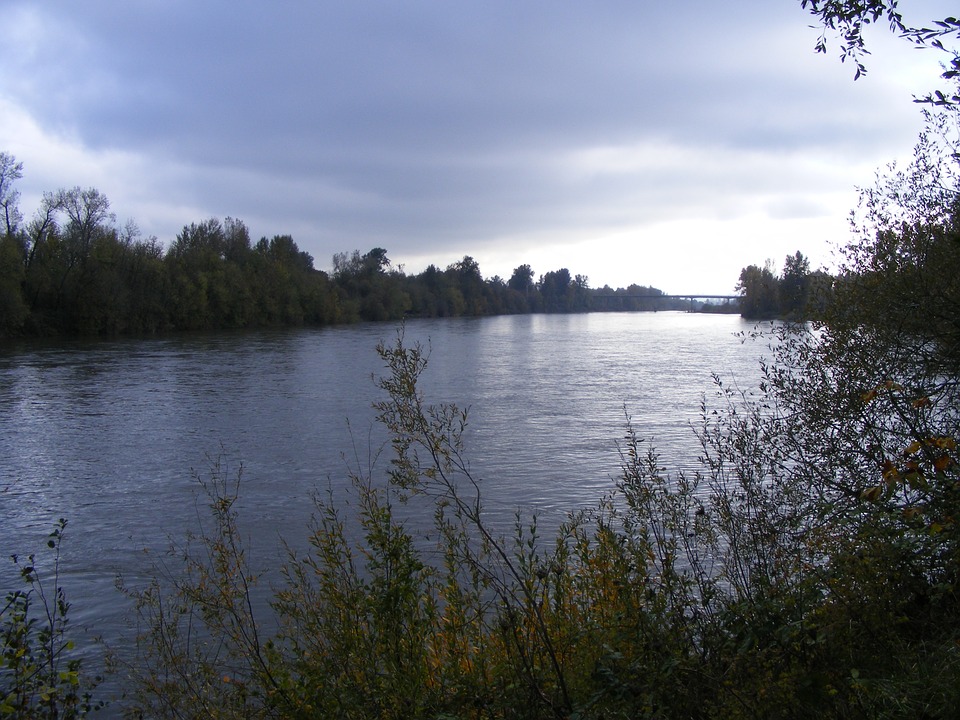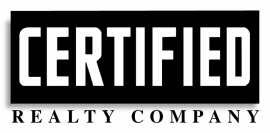There’s something not only different, but truly special about being ‘out in the country.’ The sense of natural beauty, privacy and stillness is difficult to find anywhere else.
Click the ‘play’ button below for this new podcast episode:

Out In The Country
The song ‘Out in the Country’ recorded by Three Dog Night embodies what many find so compelling:
Whenever I need to leave it all behind
Or feel the need to get away
I find a quiet place, far from the human race
Out in the country
Before the breathin’ air is gone
Before the sun is just a bright spot in the night-time
Out where the rivers like to run
I stand alone and take back somethin’ worth rememberin’
Or need a bit of room to move
When life becomes too fast, I find relief at last
Out in the country
Vive la Différence
Given the many potential lifestyle differences among Oregonians, how about differences when selling a home? Oregonians have plenty of housing options. For many homebuyers, one main decision is whether to live in the country, or the city.

Meeting Buyers Where They Are
If you’re selling country property, it’s important to realize that not everyone is a prime prospect for your home. That’s because buyer considerations between country and city properties include trade-offs. Some of these trade-offs include commute time, convenience and affordability. It’s true that home prices in general tend to become more affordable with added distance from the economic hub of cities. Yet even given a lower house price tag, with increased countryside commute times and what some see as rural inconveniences, there also tends to be a decrease in buyer demand:
Without lots of employers, wages in small towns are about a third lower than in cities, at just $44,212 in 2015, according to the U.S. Department of Agriculture Economic Research Service. That’s had a big impact on property values. Home prices have grown only 13.6% in predominantly rural parts of the country since they bottomed out in 2011, according to the Joint Center for Housing Studies of Harvard University. Meanwhile, they’ve risen 25% in more populated areas over the same time period.
So while many buyers speak longingly about having ‘a place in the country,’ the reality of change is just too overwhelming for some. So they stay in the city or suburbs. For additional information about the unique aspects of selling farm property, check out our article, ‘Oregon Farm Selling Made Easy’ here.
Does this mean country property sellers are doomed to the ‘double whammy’ of fewer buyers and a longer selling period? Isn’t there a buyer for every property? And what about other aspects of the sale, like getting a loan, appraisal and inspections. Are those different for country transactions, too? Find out more in this edition of the Oregon Real Estate Podcast.

Definitions
There are a variety of definitions for the terms ‘rural,’ ‘urban’ and ‘suburban.’ For our purposes, the continuum of differences between each can be explained by relative population density. For example, while downtown Portland is clearly urban, many nearby areas are suburban, with other areas requiring longer commutes best described as rural. So whether we’re talking about Beaverton, Bend, or Bandon, many Oregon locales offer a mix of relative urban, suburban and rural areas. One handy method to separate ‘city’ from ‘country’ is the mode for which certain utilities are accessed. The vast majority of city properties are connected to both public water and sewer, while many country properties are connected to a well and septic system.

Dueling Dispositions
If you’re unfamiliar with wells or septic systems, you may not be a country dweller. Similarly, those who have a working knowledge of rural utilities often are not suburbanites or city-dwellers. This simple dichotomy helps to explain the different mindsets among city and country property buyers. In fact, there’s even a scientific basis to suggest different brain function among city dwellers, compared to those in rural areas.

As you might expect, city residents tend to be less familiar with systems unique to country living. Country homesellers who hire a Realtor familiar with rural property have an advantage, because if buyer questions come up, their ‘country conversant’ agent can better address them and even ‘de-escalate’ situations where anxious buyers may not yet be comfortable with commonplace farm features and systems. Familiarity with septic inspections, water testing, soils maps and well logs constitute just a part of what professional rural property Realtors are equipped to routinely handle.
Riches in Niches
When selling country property, one significant country homebuyer niche includes buyers already living in your area. After all, they already are familiar with the area, possibly have kids enrolled in local schools and are often ‘sold’ on staying nearby to family and friends. This is one reason experienced Realtors include local advertising in their real estate marketing quiver.

Wants vs. Needs
Whether you’re selling a property in the country or city, it’s helpful to understand that every buyer usually has their own list of ‘wants’ and ‘needs.’ As you consider the sale of your home, realize a buyer’s ‘needs’ list usually represents the non-negotiable features that a property must have for that buyer to seriously consider your property. Chief among these factors across all property types is affordability. This means if your property shares similar features with other area properties, expect buyers to compare before deciding.

Educated Buyers
Educated buyers are especially adept at adapting, rather than spending more than necessary. For example, if you’re selling a country property with 15 acres and you aren’t sufficiently competitive with your price, expect these buyers to consider that less expensive 10 acre property down the road (which may even have a slightly larger house), instead of yours. Alternatively, if the nice 3 bedroom home you’re selling has all new appliances and flooring, but is located next to a noisy highway, expect to ‘lose out’ to sellers with less updated properties, unless your price truly reflects the market value. This is where your Realtor’s diligence and research can really pay off for you. The point is that buyers will shop, then make adjustments between properties they like. The lesson? Whether you’re selling a country or city home, don’t lose out to other, more market-friendly properties due to an overly optimistic price.

Some Common Urban Homebuyer Factors
Commute time/traffic
Schools
Crime
Quiet neighborhood
Public transportation options
Walking score
Shopping
Parks & recreational venues

Some Common Rural Homebuyer Factors
Water rights & flood insurance
Soil types
Commute Time/Traffic
Wells & septic systems
Barns & outbuildings
Fences
Schools
Crime
Internet /cellphone connectivity

Pricing Your Property
Whether you’re selling in the city or country, in order to properly evaluate your home’s market value, Realtors use ‘comparables.’ This means examining local, similar, recently sold homes that approximate your property for comparison purposes. And just like buyers vary between country & city, the mere task of accurately pricing property can look different, too.
That’s because given a significantly higher density of homes in the city, there are often many more ‘comparables’ there that have recently sold. This provides more pricing data for Realtors to work with in evaluating a city property’s market value, with the likelihood for fewer adjustments between properties.
That’s not always true in the country. Unlike city properties, which often share similar lot and even home sizes, accurately evaluating a property’s value with significant acreage discrepancies and uses (different barn types and sizes for example), can take considerable expertise. For example, while a similarly-sized neighbor’s home may have just sold, if there’s a 10 acre difference, pricing and the likely buyer profile can vary widely.
Appraisals
Once you have a pending home sale, you’re not out of the woods yet. That’s because much like your Realtor’s pricing research, the required lender appraisal for country property can involve appraisers using comparable sold properties often distantly located as part of the process to determine value. It’s therefore helpful if the appraiser assigned to your transaction is familiar with farmland, your area and also adjusting for factors like location. If there are scant comparables in the recent past, appraisers sometimes adjust for the difference in time. So if your local housing market has risen a certain percentage over the past year and comparable sold properties are few, they may use what comparables are available, then build that change in the housing market when using an older comparable.
Accentuate the Positive…
Some property factors, like location, are difficult to change. Regardless of your property’s characteristics, success is usually best found by focusing on the positives and pricing realistically to the market.

Specialty Property Premium
Just as with urban properties, country properties can have some negatives. A history of flooding, proximity to railroad tracks, or other factors can cause the market to discount your property’s value.

The Sunny Side
Examples of some premium factors include waterfront, water rights for irrigation, good soils, level ground and attractive outbuildings.

One important country property buyer group is for equestrian properties. As a result, if your property has an abundance of level ground, good fences and horse friendly buildings, you may have a real winner on your hands. Working with your agent, targeting buyer niches that best fit your country property can significantly lessen market time as you move forward with your rural home sale.

Work With The Experts!
Whether you’re selling property in the country, city, or suburbs, contact Certified Realty for a free consultation using the convenient form below.